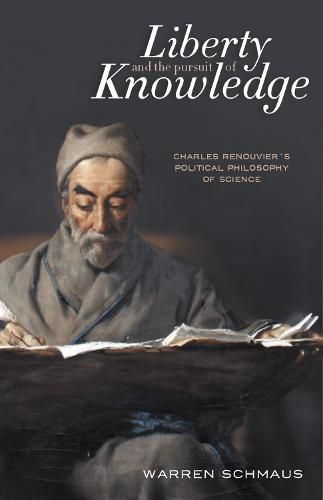Readings Newsletter
Become a Readings Member to make your shopping experience even easier.
Sign in or sign up for free!
You’re not far away from qualifying for FREE standard shipping within Australia
You’ve qualified for FREE standard shipping within Australia
The cart is loading…






French philosopher Charles Renouvier played an influential role in reviving philosophy in France after it was proscribed during the Second Empire. Drawn to the ideals of the French Revolution, Renouvier came to recognize that the free will and civil liberties he supported were essential to the pursuit of science, contrary to the ideologies of positivists and socialists who would restrict liberty in the name of science. He struggled against monarchy and religious authority in the period up through 1848 and defended a liberal, secular form of political organization at a critical turning point in French history, the beginning of the Third Republic. As Warren Schmaus argues, Renouvier’s work provides an example of one way in which philosophy of science can succeed in bringing about change in political life-by critiquing political ideologies that falsely claim absolute certainty on religious, scientific, or any other grounds. Liberty and the Pursuit of Knowledge explores the understudied relationship between Renouvier’s philosophy of science and his political philosophy, shedding new light on the significance of his thought for the history of philosophy.
$9.00 standard shipping within Australia
FREE standard shipping within Australia for orders over $100.00
Express & International shipping calculated at checkout
French philosopher Charles Renouvier played an influential role in reviving philosophy in France after it was proscribed during the Second Empire. Drawn to the ideals of the French Revolution, Renouvier came to recognize that the free will and civil liberties he supported were essential to the pursuit of science, contrary to the ideologies of positivists and socialists who would restrict liberty in the name of science. He struggled against monarchy and religious authority in the period up through 1848 and defended a liberal, secular form of political organization at a critical turning point in French history, the beginning of the Third Republic. As Warren Schmaus argues, Renouvier’s work provides an example of one way in which philosophy of science can succeed in bringing about change in political life-by critiquing political ideologies that falsely claim absolute certainty on religious, scientific, or any other grounds. Liberty and the Pursuit of Knowledge explores the understudied relationship between Renouvier’s philosophy of science and his political philosophy, shedding new light on the significance of his thought for the history of philosophy.